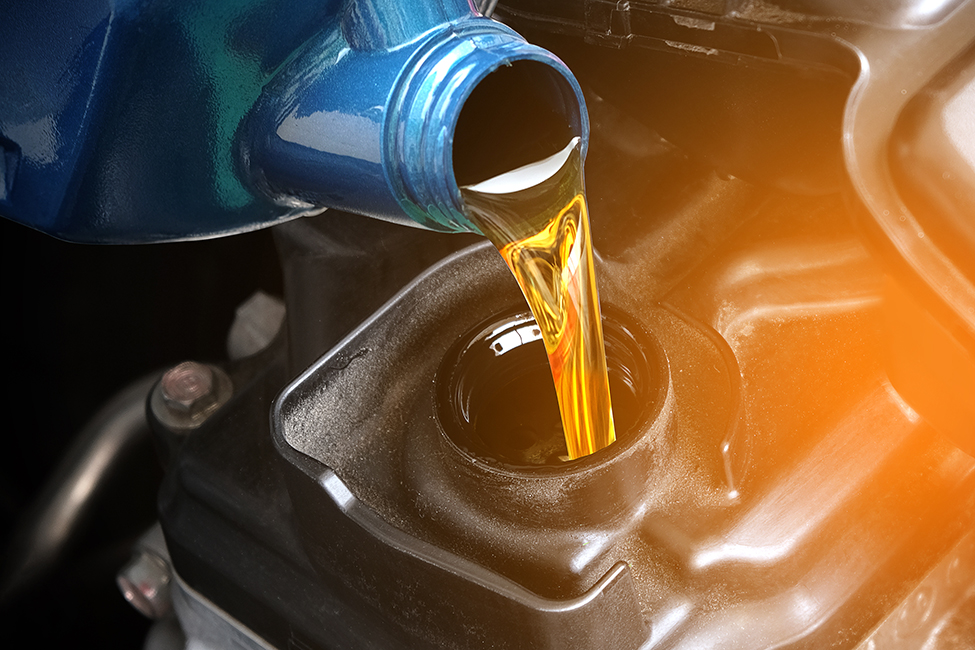Engine oil: how to choose it?

What is its function?
As an assemblage of moving parts subject to high temperatures, your engine needs an effective lubricant. Stored in the crankcase, the lubricant is sucked in by the oil pump, purified by a filter (to be changed regularly) and directed under pressure to the pistons, valves, camshaft, connecting rods, crankshaft and possibly the turbo. During its journey, the engine oil captures the micro-particles linked to the everyday wear of these rotating elements and protects them against the corrosive and oxidising effects of combustion residues.
Engine oil has an essential protective role for the engine. You should, therefore, ensure the oil level is sufficient and that the quality is optimal. The slightest leak, detectable by traces it can leave on a parking area, should alert you and therefore prompt you to have your engine checked by a professional!
What are the different motor oils?
Motor oils are categorised by their viscosity, i.e., their ability to flow. The viscosity, identified by a cold and hot grade, is indicated on either side of the letter W (for winter), e.g. 15W40. The lower the cold rate is (first number), the easier it is to start in the cold, and the higher the hot rate is (second number), the more viscosity the will retain at high temperatures.
Among the motor oils on the market, you will find synthetic oils (5W30 and 5W40), mineral oils (15W40) and semi-synthetic oils (10W40), which are mixtures of the first two.
How to choose your engine oil?
Start by referring to the manufacturer’s instructions in your vehicle’s user manual. In most cases, an oil of 5W30, 5W40 or 10W40 grade will suit your engine. However, you will require a specific engine oil in some cases:
- newer vehicle used primarily in the town: opt for a synthetic 5W30 or 5W40 oil;
- vehicles over 10 years old used for urban or a mix of purposes: opt for a semi-synthetic 10W40 oil;
- very old or even vintage vehicles: choose a high-viscosity 15W40 mineral oil.
Which brand of motor oil should I choose?
There are many manufacturers, and not all motor oils are created equal. The best products contain highly effective additives that reinforce their anti-corrosive or anti-oxidant performance. Containers made by reputable brands are more expensive but guarantee quality engine oil. It is advisable to avoid low-end products that have an attractive price but uncertain quality. If in doubt, don’t hesitate to ask for advice from a professional who will be able to guide you towards the best value for money at the moment!
Good to know: provided you have the necessary tools, you can carry out your oil change and oil filter replacement yourself. After the operation, never dispose of the engine oil or used filter with your household waste. There are special containers at waste disposal centres. This is all the more important given the extremely polluting nature of these oils.
A well-chosen engine oil and regular oil and filter changes will help you look after your engine. This special care and attention may prevent your engine from breaking down!














